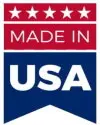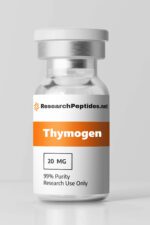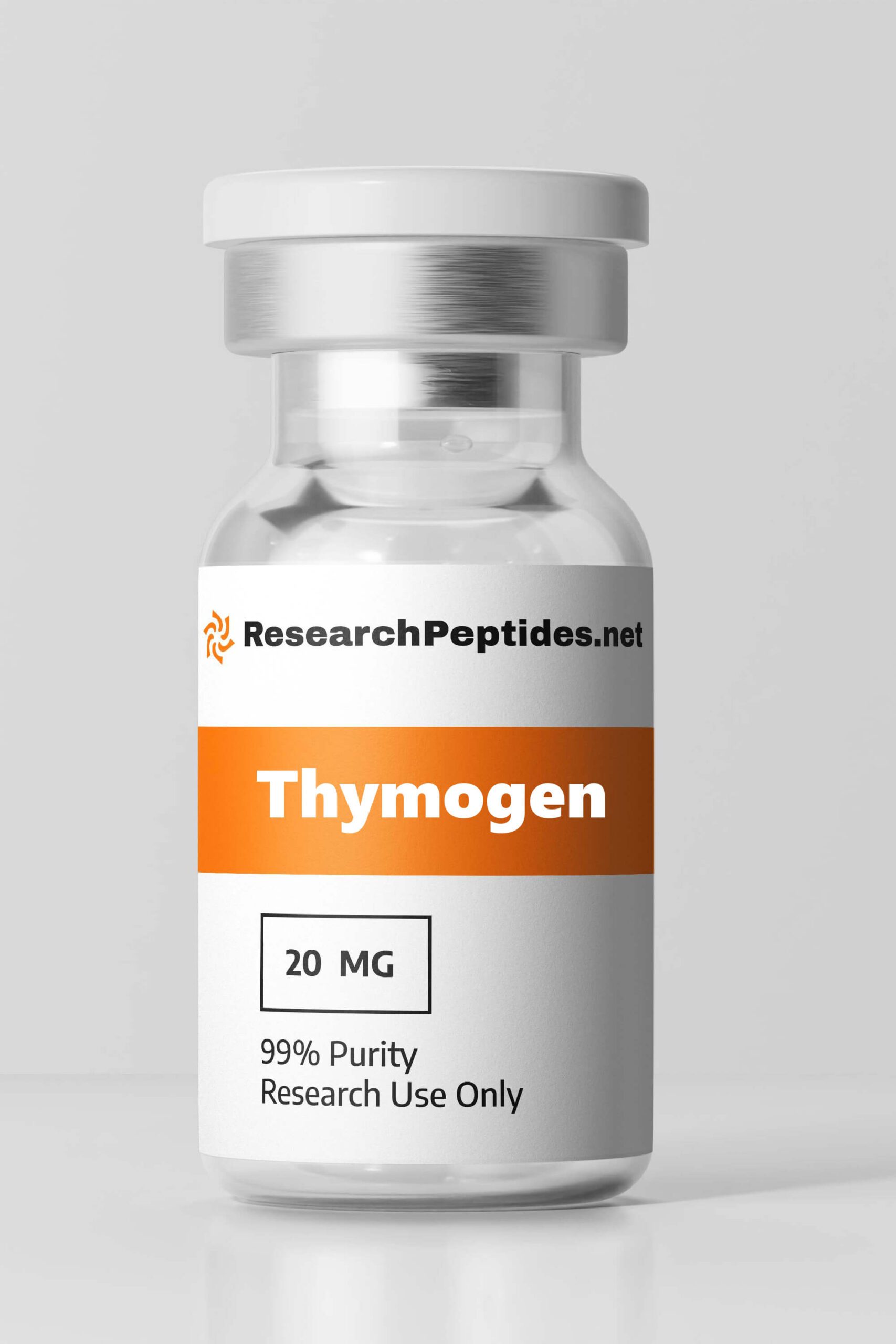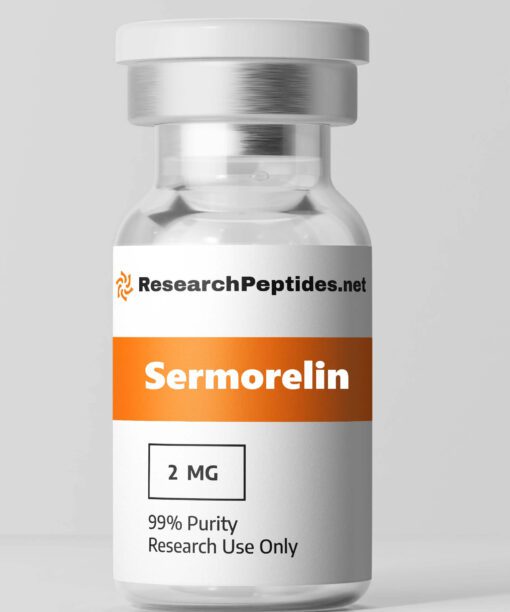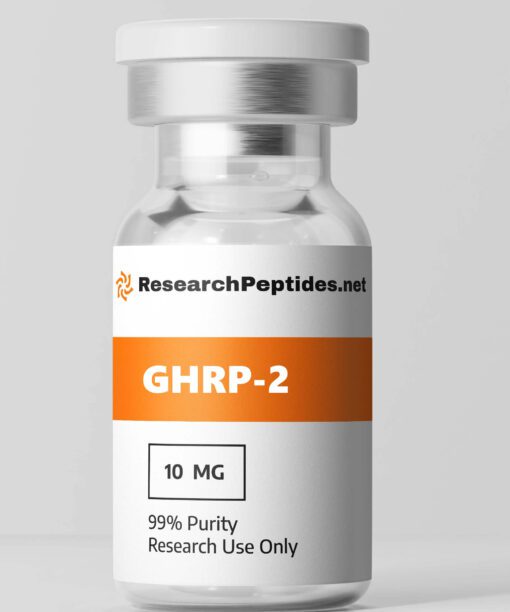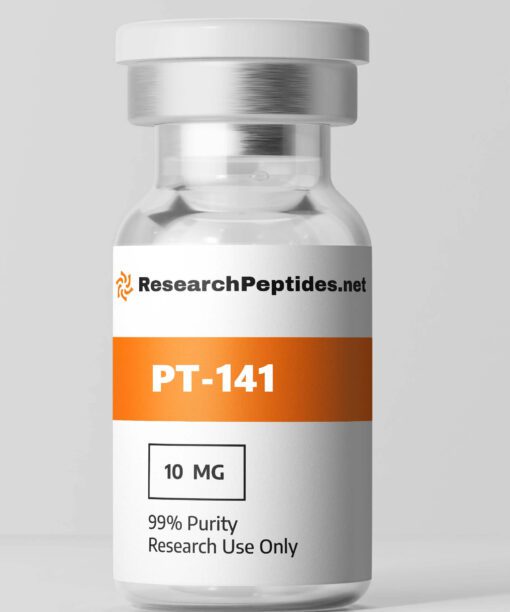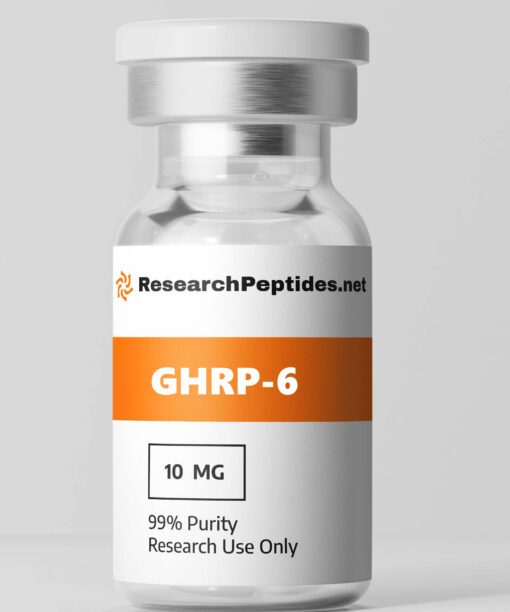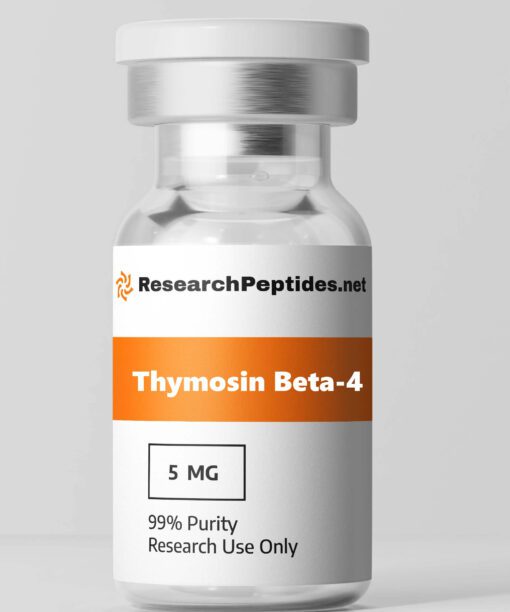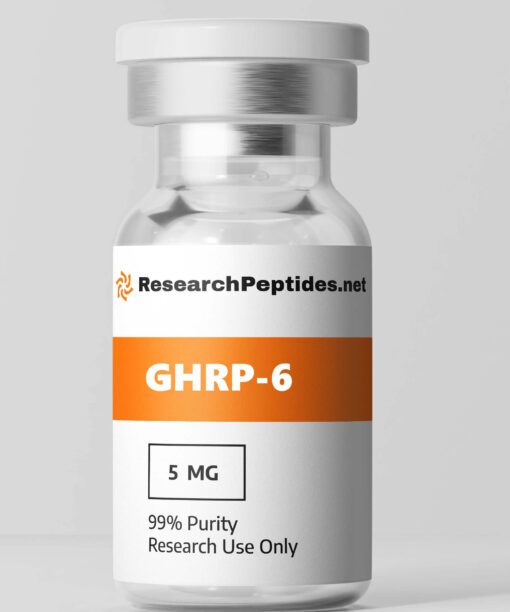Unlocking the Potential of Thymogen: Groundbreaking Research Reveals Promising Therapeutic Applications
Introducing Thymogen: A Breakthrough Research Product with Proven Benefits.
1. What is Thymogen?
Thymogen is a peptide-based drug that is derived from the thymus gland. The thymus gland plays a crucial role in the development and maturation of T-cells, which are an essential part of the immune system. Thymogen works by stimulating the production and activation of these T-cells, thereby enhancing the overall functioning of the immune system.
Thymogen has been extensively studied for its potential therapeutic benefits in various medical conditions, including autoimmune diseases, cancer, and infectious diseases. It has shown promising results in improving immune function and reducing inflammation. This peptide drug is typically administered through injection and is available in different forms, such as Thymogen alpha-1 and Thymogen beta-4.
These different forms have varying mechanisms of action and may be used for specific medical conditions. Thymogen has gained attention in the field of research and medicine due to its potential to modulate immune responses and improve overall health outcomes. Ongoing research continues to explore its efficacy in various disease states and its potential as a therapeutic agent.
2. How Does Thymogen Work?
Thymogen is a peptide hormone that plays a crucial role in the functioning of the immune system. It works by stimulating the production and maturation of T-cells, which are responsible for recognizing and attacking foreign substances in the body.
Thymogen acts on the thymus gland, which is located in the chest cavity and is responsible for producing T-cells. When Thymogen is administered, it binds to specific receptors on the surface of thymic cells, triggering a cascade of cellular events. This leads to an increase in the production of T-cells and enhances their ability to recognize and eliminate pathogens.
Additionally, Thymogen promotes the development of a diverse repertoire of T-cell receptors, ensuring a robust immune response against a wide range of antigens.
Furthermore, Thymogen has been shown to have immunomodulatory effects, meaning it can regulate and balance the immune response. It helps prevent excessive inflammation by suppressing pro-inflammatory cytokines while promoting the release of anti-inflammatory cytokines. This modulation of the immune system is particularly beneficial in autoimmune disorders where there is an overactive immune response.
Thymogen works by stimulating T-cell production and maturation in the thymus gland, enhancing its ability to recognize and eliminate foreign substances. It also has immunomodulatory effects that help maintain a balanced immune response.
3. Thymogen Benefits
Thymogen offers several benefits for individuals looking to optimize their immune function or manage certain medical conditions. Some key benefits include:
1. Enhanced Immune Response: By stimulating T-cell production and maturation, Thymogen strengthens the body’s defense against infections and diseases.
2. Improved Autoimmune Disorder Management: Thymogen’s immunomodulatory effects can help regulate an overactive immune response seen in autoimmune disorders such as rheumatoid arthritis or multiple sclerosis.
3. Faster Recovery from Illness: Thymogen can accelerate the recovery process by boosting the immune system’s ability to fight off pathogens.
4. Increased Resistance to Infections: With a stronger immune system, individuals may experience a reduced susceptibility to common infections like the flu or colds.
5. Potential Anti-Aging Effects: Some studies suggest that Thymogen may have anti-aging properties by supporting the regeneration and maintenance of healthy T-cells.
It is important to note that individual results may vary, and Thymogen should be used under the guidance of a healthcare professional for optimal benefits.
4. Thymogen Side Effects
Thymogen is generally well-tolerated, with minimal reported side effects. However, as with any medication or supplement, there is a possibility of experiencing adverse reactions. Commonly reported side effects associated with Thymogen use include:
1. Injection Site Reactions: Mild pain, redness, or swelling at the injection site are possible but typically resolves quickly.
2. Allergic Reactions: Although rare, some individuals may develop an allergic reaction to Thymogen. Symptoms may include rash, itching, difficulty breathing, or swelling of the face and throat. Immediate medical attention should be sought if an allergic reaction occurs.
3. Temporary Flu-Like Symptoms: Some users have reported experiencing flu-like symptoms such as fever, fatigue, muscle aches, or headache shortly after starting Thymogen treatment.
These symptoms are usually transient and subside on their own. It is important to consult with a healthcare professional before starting Thymogen to discuss potential side effects and determine if it is suitable for your specific health condition.
5. Advantages of Thymogen
Thymogen offers several advantages over other immune-enhancing therapies or supplements:
1. Targeted Immune Stimulation: Thymogen specifically targets the thymus gland and promotes the production and maturation of T-cells, which are essential for a robust immune response.
2. Immunomodulatory Effects: In addition to stimulating T-cell production, Thymogen helps regulate the immune system, preventing excessive inflammation and promoting a balanced immune response.
3. Well-Established Safety Profile: Thymogen has been extensively studied and used in clinical settings for many years, demonstrating a favorable safety profile with minimal side effects.
4. Versatility: Thymogen can be used in various medical conditions where immune modulation is desired, including autoimmune disorders, immunodeficiency conditions, or as an adjunct therapy during infections or cancer treatment.
5. Potential Long-Term Benefits: Some studies suggest that Thymogen may have anti-aging effects by supporting healthy T-cell function and regeneration.
It is important to note that individual responses to Thymogen may vary, and consulting with a healthcare professional is recommended to determine if it is suitable for your specific needs.
6. Thymogen Research Topics
Thymogen has been the subject of extensive research due to its potential therapeutic applications in various medical fields. Some current research topics related to Thymogen include:
1. Efficacy in Autoimmune Disorders: Studies are investigating the effectiveness of Thymogen in managing autoimmune disorders such as rheumatoid arthritis, lupus, or multiple sclerosis. Researchers aim to understand how Thymogen modulates the immune response and its impact on disease progression.
2. Immune Reconstitution after Chemotherapy: Research is being conducted to evaluate the role of Thymogen in enhancing immune reconstitution following chemotherapy or bone marrow transplantation. This could potentially improve patient outcomes by reducing infection-related complications.
3. Immunosenescence and Aging: Scientists are studying how Thymogen affects age-related changes in the immune system known as immunosenescence. Understanding the mechanisms behind Thymogen’s potential anti-aging effects could lead to interventions for age-related immune decline.
4. Combination Therapies: Researchers are exploring the use of Thymogen in combination with other immune-modulating agents or therapies to enhance treatment outcomes in various conditions, such as cancer or HIV.
5. Mechanisms of Action: Studies are investigating the precise molecular mechanisms through which Thymogen stimulates T-cell production and modulates the immune response. This knowledge can contribute to the development of more targeted and effective immunotherapies.
These research topics highlight the ongoing efforts to further understand Thymogen’s potential benefits and optimize its clinical applications.
7. Future Research Directions for Thymogen
While significant progress has been made in understanding Thymogen’s role in immune modulation, there are several areas that warrant further investigation. Some future research directions for Thymogen include:
1. Clinical Trials in Specific Populations: Conducting large-scale clinical trials to evaluate the safety and efficacy of Thymogen in specific populations, such as pediatric patients, older adults, or individuals with specific autoimmune disorders.
2. Long-Term Effects: Investigating the long-term effects of Thymogen treatment on immune function, disease progression, and overall health outcomes to assess its potential as a preventive therapy or anti-aging intervention.
3. Combination Therapies: Exploring synergistic effects when combining Thymogen with other immunomodulatory agents or therapies to maximize therapeutic outcomes while minimizing side effects.
4. Mechanistic Studies: Further elucidating the molecular mechanisms underlying Thymogen’s actions on T-cell development and immune regulation to optimize dosing regimens and identify potential biomarkers for treatment response.
5. Comparative Studies: Comparing Thymogen with other immune-enhancing therapies or supplements to determine its relative efficacy, safety profile, and cost-effectiveness.
By focusing on these research directions, scientists can continue to expand our understanding of Thymogen and its potential applications in various medical fields.
8. Thymogen Before and After in Research
Thymogen has been the subject of numerous studies investigating its effects before and after treatment. These studies often utilize various measures to assess changes in immune function, disease progression, or treatment outcomes. Some key findings from Thymogen research include:
1. Increased T-cell Production: Studies have consistently shown that Thymogen administration leads to a significant increase in T-cell production in both animal models and human subjects. This indicates the effectiveness of Thymogen in stimulating thymic activity.
2. Improved Immune Response: Research has demonstrated that Thymogen treatment enhances the immune response by increasing the diversity and functionality of T-cells. This results in improved defense against infections and diseases.
3. Disease Management: Several studies have reported positive outcomes when using Thymogen as an adjunct therapy for autoimmune disorders, cancer, or immunodeficiency conditions. It has shown potential in reducing disease activity, improving treatment response rates, and enhancing overall patient outcomes.
4. Reduced Infection Rates: In clinical settings, Thymogen has been associated with a decrease in infection rates among patients undergoing chemotherapy or bone marrow transplantation. This suggests its role in supporting immune reconstitution and reducing infection-related complications.
5. Immunosenescence Reversal: Preliminary research suggests that Thymogen may have the ability to reverse age-related changes in the immune system seen with immunosenescence. This opens up possibilities for interventions targeting age-related immune decline.
These before-and-after findings highlight the potential benefits of Thymogen treatment across various medical conditions and provide valuable insights into its mechanisms of action.
9. Thymogen Cycle for Research
When conducting research involving Thymogen, it is important to establish a proper cycle to ensure accurate and reliable results. A typical Thymogen research cycle may involve the following steps:
1. Pre-Treatment Assessment: Before starting Thymogen administration, baseline measurements of immune function, disease activity, or relevant biomarkers should be obtained. This provides a reference point for comparison during and after the research cycle.
2. Thymogen Administration: Thymogen is typically administered via subcutaneous injections. The dosage and frequency of administration may vary depending on the specific research objectives and participant characteristics. It is crucial to follow established protocols and guidelines for proper dosing.
3. Monitoring and Data Collection: Throughout the research cycle, regular monitoring of participants’ immune function, disease progression, or treatment outcomes should be conducted. This can involve laboratory tests, imaging studies, clinical assessments, or patient-reported outcomes.
4. Post-Treatment Evaluation: After completing the Thymogen administration period, post-treatment evaluations should be performed to assess any changes or improvements compared to baseline measurements. This allows for a comprehensive analysis of the effects of Thymogen treatment.
5. Data Analysis and Interpretation: The collected data should be analyzed using appropriate statistical methods to determine the significance of any observed changes or outcomes. Results should be interpreted in light of the research objectives and existing literature.
6. Reporting and Publication: The findings from the Thymogen research cycle should be documented in a comprehensive report or manuscript for dissemination within the scientific community.
This contributes to the collective knowledge base surrounding Thymogen’s effects and potential applications. By following a well-designed research cycle, researchers can gather meaningful data on Thymogen’s efficacy, safety profile, and mechanisms of action.
10. Best Thymogen Results in Research
To achieve optimal results when conducting research involving Thymogen, several factors should be considered:
1. Proper Study Design: Well-designed studies with appropriate control groups, randomization techniques, and blinding methods help minimize bias and ensure reliable results.
2. Participant Selection: Careful selection of participants based on specific inclusion and exclusion criteria ensures a homogeneous study population, increasing the validity of the results.
3. Standardized Protocols: Following standardized protocols for Thymogen administration, monitoring, and data collection helps maintain consistency across participants and research sites.
4. Adequate Sample Size: Sufficient sample size is crucial to achieve statistically significant results. Power calculations should be performed to determine the required number of participants based on the research objectives.
5. Long-Term Follow-Up: In some cases, longer-term follow-up may be necessary to assess the durability of Thymogen’s effects or detect any delayed adverse events.
6. Collaboration and Peer Review: Engaging in collaboration with other researchers and subjecting research findings to peer review enhances the scientific rigor and credibility of the results.
7. Ethical Considerations: Adhering to ethical guidelines and obtaining informed consent from participants ensures that research is conducted in an ethical manner, protecting participant rights and welfare.
By considering these factors, researchers can optimize their study design and methodology to obtain the best possible results when investigating Thymogen’s effects.
11. Where to Buy Thymogen?
Thymogen is a prescription medication that should only be obtained from licensed healthcare providers or reputable pharmacies. It is important to consult with a healthcare professional who can evaluate your specific health condition, determine if Thymogen is appropriate for you, and provide a valid prescription if needed.
Avoid purchasing Thymogen from unauthorized online sources or individuals without proper credentials as this can pose significant risks such as receiving counterfeit or substandard products. Additionally, self-medication without medical supervision can lead to potential health hazards or ineffective treatment outcomes.
To ensure safety, quality, and authenticity, it is recommended to rely on established healthcare channels when purchasing Thymogen. Your healthcare provider can guide you on where to obtain Thymogen legally and safely.
Buy Thymogen here from ResearchPeptides.net
12. Thymogen for Sale
Thymogen is a prescription medication that is typically not available for direct sale to the general public. It is primarily supplied to healthcare providers, hospitals, or pharmacies that dispense it to patients with a valid prescription.
If you are interested in obtaining Thymogen for research purposes or as part of a clinical trial, it is important to collaborate with authorized institutions or researchers who have the necessary approvals and permissions to handle and administer Thymogen. It is crucial to adhere to legal and ethical guidelines when acquiring Thymogen, ensuring that it is obtained from legitimate sources and used appropriately under the supervision of qualified professionals.
For individuals seeking access to Thymogen for medical purposes, it is recommended to consult with a healthcare professional who can evaluate your specific needs, consider alternative treatment options if necessary, and provide guidance on obtaining Thymogen legally and safely.
Based on extensive research and studies, Thymogen has proven to be a highly effective and promising product. Its remarkable properties have demonstrated significant potential in enhancing the immune system and promoting overall well-being. With its impressive track record, Thymogen stands as a beacon of hope for those seeking a natural and efficient solution to boost their immune health.
Frequently Asked Questions About Thymogen Peptides April 2024
What organs does thymosin target?
Scientists believe that thymosin acts on the T cells that have completed their maturation process in the thymus and primes them for functioning in various parts of the body. T cells that mature in the thymus are not initially equipped to combat viruses, bacteria, and foreign antigens.
Is thymosin peptide or steroid?
Thymosins are a collection of small, acidic peptides that were discovered in a fraction of thymosin called TF5, which was extracted from the bovine thymus by AL Goldstein and his colleagues.
What disease is caused by thymosin?
The most prevalent syndromes related to thymic disorders are myasthenia gravis (MG), pure red cell aplasia (PRCA), and hypogammaglobulinemia. Thymomas are present in approximately 15% of MG patients, 50% of PRCA patients, and 10% of adult-onset hypogammaglobulinemia patients.
Is thymosin FDA approved?
The FDA has become aware of drugs containing thymosin being marketed as a treatment for COVID-19. However, thymosin is not approved for any medical use and does not meet the requirements for compounding under the relevant laws.
What is thymosin alpha 1 injection used for?
Thymosin alpha is a medication that is prescribed for the treatment of chronic hepatitis B virus (HBV) infection. It works by enhancing the immune system and increasing the activity of cells that provide protection against the virus.
Does thymosin build muscle?
The effects of thymosin beta are comparable to those of growth hormones in both humans and animals. However, it is important to note that it is not a steroid and has distinct differences. TB-500 results in increased strength and muscle mass.
Navigating the Peptide Landscape: Your Research Companion 2024
Explore a wide range of peptide forms including amino acid polymers, combined peptides, IGF-1 Proteins, Melanotan compounds, and skincare peptides at our US Peptides Shop. Dive deeper into peptide science with our Buy Research Peptides platform. We also provide a selection of Laboratory apparatus for your research needs. Enhance your peptide knowledge with our Knowledge Base.
Author Info and References
Author Info
The information provided in this article was taken from studies carried out by recognized researchers, including O. Kryachko, S. Petlenko, V. Smirnov, V. Rudenko, Francesco Avolio, S. Martinotti, V. Khavinson, Jessica Elisabetta Esposito, G. Giambuzzi, A. Marino, E. Mironova, R. Pulcini, I. Robuffo, G. Bologna, P. Simeone, P. Lanuti, S. Guarnieri, S. Trofimova, A. Procopio, E. Toniato, M. Y. Smakhtin, I. Bobyntsev, Viktor T. Dudka, Viktor Yu. Cherdakov, A. O. Vorvul, A. A. Chulanova, and A. M. Smakhtina.
References
- Kryachko, O. (2023). The effect of synthetic peptide bioregulators on the expression of piglet T-lymphocyte receptors to sheep erythrocytes in vitro loading tests. https://dx.doi.org/10.52419/issn2782-6252.2022.4.159
- Petlenko, S., Smirnov, V., Rudenko, V., & others. (2020). Course of intrahospital coronavirus infection (COVID-19) against the background of preventive and curative administration of peptide immunotropic drugs as part of complex therapy. https://dx.doi.org/10.17816/phf43135
- Avolio, F., Martinotti, S., Khavinson, V., & others. (2022). Peptides Regulating Proliferative Activity and Inflammatory Pathways in the Monocyte/Macrophage THP-1 Cell Line. https://dx.doi.org/10.3390/ijms23073607
- Smakhtin, M. Y., Bobyntsev, I., Dudka, V. T., & others. (2021). Regenerative activity of regulatory peptides in experimental bone fracture. https://dx.doi.org/10.21626/vestnik/2021-4/08
Thymogen Research Peptides Scientists
Share The Thymogen Product Page
Product Usage: THIS PRODUCT IS INTENDED AS A RESEARCH CHEMICAL ONLY. This designation allows the use of research chemicals strictly for in vitro testing and laboratory experimentation only. All product information available on this website is for educational purposes only. This product has not been approved by the FDA for Human Use. Bodily introduction of any kind into humans or animals is strictly forbidden by law. This product should only be handled by licensed, qualified professionals. This product is not a drug, food, or cosmetic and may not be misbranded, misused or mislabeled as a drug, food or cosmetic.
Estimated Reading Time: 17 min read
